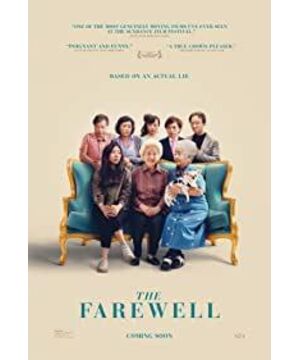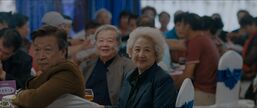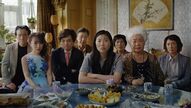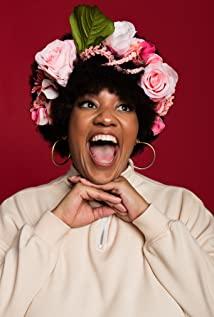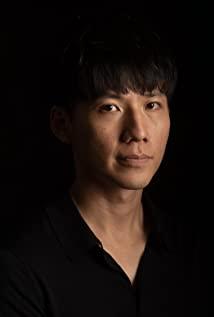When a person's life is coming to an end, should we tell him/her?
This is an age-old problem that has plagued all of us human beings. Americans feel that it is of course necessary to talk about it. It is illegal to not talk about it. The person concerned has the personal right to know that he has cancer. And most of us Chinese choose to hide it, because we feel that when a person knows that she has cancer, she is often killed by her own fear, not by the cancer itself. We don't tell her it's for her good and we're sharing her pain.
In the movie, the eldest son told Billy that maybe in the concept of Western countries, a life belongs to an individual. In the East, we feel that life is more collective, belongs to the family, and belongs to the society. The United States emphasizes the independence of people, while our Eastern culture emphasizes the bond between people.
This is a very dramatic story, but a true story that happened to the director.
The grandma's sister in the film, the director's aunt, is a real person.
The director's grandmother had cancer, and the whole family chose not to tell her that they came back suddenly from all over the world and said that it was to attend the wedding of their cousin, but in fact it was to see grandma for the last time. Only grandma was kept in the dark. The various ironic cultural conflicts that have occurred for this are the biggest attraction of this film.
"Don't Tell Her" was a hit at this year's Sundance Film Festival, where it was nominated for Best Feature Film.
When it was released in the United States, the single-house box office even surpassed "Avengers 4", and it also got a 100% bright start on Rotten Tomatoes.
And Awkwafina, the star of this film, is the brightest Chinese star in the United States today. We have seen Awkwafina's comedy genius in "Hiding the Sky - The Beauty Plan" and "Crazy Rich Asians". However, she broke through the previous roles and chose a role with sadness inside and always suppressing her emotions and pain.
Yasujiro Ozu once said: Running and jumping when happy, crying and shouting when sad, that is what the monkeys at Ueno Zoo do. Smile on the face, cry in the heart, speak the opposite language in the heart, make the face opposite in the heart, this is called a person.
Yes, what the director emphasized in this passage is the typical suppression of emotions in Eastern culture, while Western culture advocates that people should release their emotions.
Everyone in the "Don't Tell Her" story seems to be saying the opposite of what's going on in their hearts.
Everyone was saying that I had a good life, and never mentioned the hardships in my life.
Behind everyone's happy facial expressions is an effort to suppress their own painful emotions.
There are many interesting symbolic images in the movie. First of all, let’s talk about the meaning of the bird. When Billie was in the United States, a bird suddenly flew into the room when Billie knew that her grandmother had cancer and was about to die. So the bird represents the sudden arrival of bad luck.
Later, when Billie returned to China, when she was in the hotel, another bird flew out of the window. This bird was almost the same as the bird in the United States. At this time, her grandmother was admitted to the hospital, which means that bad luck still exists. Follow her and haunt their entire family.
In the end, when Bi Li gave a loud scolding like learning from her grandmother on the streets of the United States, a flock of birds flew out of the big trees in the community where her grandmother lived in China. It was very interesting here. It was obviously an expression of western emotions, but it used a kind of The Eastern way (promoting power), this represents a good blend of Eastern and Western cultures, and it also means that the bad luck surrounding their entire extended family has finally dissipated. The problem of working in the United States is about to be solved. The grandma who appeared after the movie ended was the director's grandma. She finally overcame cancer, recovered, and continued to practice qigong. This represents the whole story. Although this plan to conceal grandma's condition may seem ridiculous, it is successful and useful in the end. The inside and outside of the movie, including the director's real life, is a happy ending.
In the movie, Billie's father is the youngest son of her grandmother. The whole family came back from the United States, representing the oriental people who are immersed in western culture.
Haohao's father is the eldest son of his grandmother. The whole family came back from Japan, representing a Japanese culture that is more repressed, more restrained, and less good at expressing and releasing emotions than China.
However, the family of the eldest son was the first to get out of control. Eldest son nearly collapses when he expresses gratitude to his mother at the wedding. Haohao should be the happiest groom, but he burst into tears. The attitude of forbearance conveyed in Japanese culture all the time is completely gone. Here is a director’s irony, which means that if a culture is more accustomed to repression, it will explode more thoroughly.
On the other hand, Bi Li and the others, who are deeply influenced by Western culture, are the easiest to release their feelings, and the most difficult to hold back their family, but they are sticking to this secret from beginning to end. Broken Gong", her mother and she couldn't help but shed tears when the car finally drove to the airport.
What this film always conveys and expresses is the difference and blending, estrangement and understanding of Eastern and Western cultures.
Why does grandma make sure the dinner menu is lobster, not crab, before the wedding is about to start?
Because lobster represents western food culture, and crab is a typical food in eastern culture.
In order to welcome the return of her favorite granddaughter, grandma catered to the western eating habits of her granddaughter's family, so she must have lobster, and in the end, Haohao still served crabs at the wedding banquet. The meaning here is to express that Billie, who came back from the west, is still in the end. Accepting the oriental culture and adapting to the customs here, the two cultures have achieved a mutual reconciliation and respect. Japanese songs, English songs, and Chinese songs sang at the same wedding, composing an interesting and different family sonata.
The color of the sky in the film is always gloomy gray, which also represents the depressed and painful state of mind of the heroine Bili at all times, but when she finally left, a sculpture like a rainbow bridge was erected in her home that had been demolished. This means that the final ending of the story is happy and beautiful, and the bridge also represents the connection and integration between different cultures.
The English name of the movie is - the Farewell. It means farewell.
In the movie, Bi Li once complained to her mother that my hometown is passing away, my childhood memories are passing away, my grandfather has passed away, and now my grandma is also passing away, why is everything passing away so quickly?
This question is also a question we have been asking ourselves while watching movies.
In fact, our growth is a process of having to accept that we are constantly passing away, a process of saying goodbye to our beloved ones.
So, is there anything that can slow down this helpless passing a little?
No, you have to force yourself to adapt, and you can't let the sudden and fast passing speed disturb the rhythm and speed of your life journey that should continue to move forward smoothly.
After watching the movie, I think about it now, the kind of farewell after college graduation is really a piece of cake. After becoming an adult, more and more goodbyes from loved ones are the real pain. There is really no eternity between people, everything is Just a well-placed and short-lived encounter.
View more about The Farewell reviews


